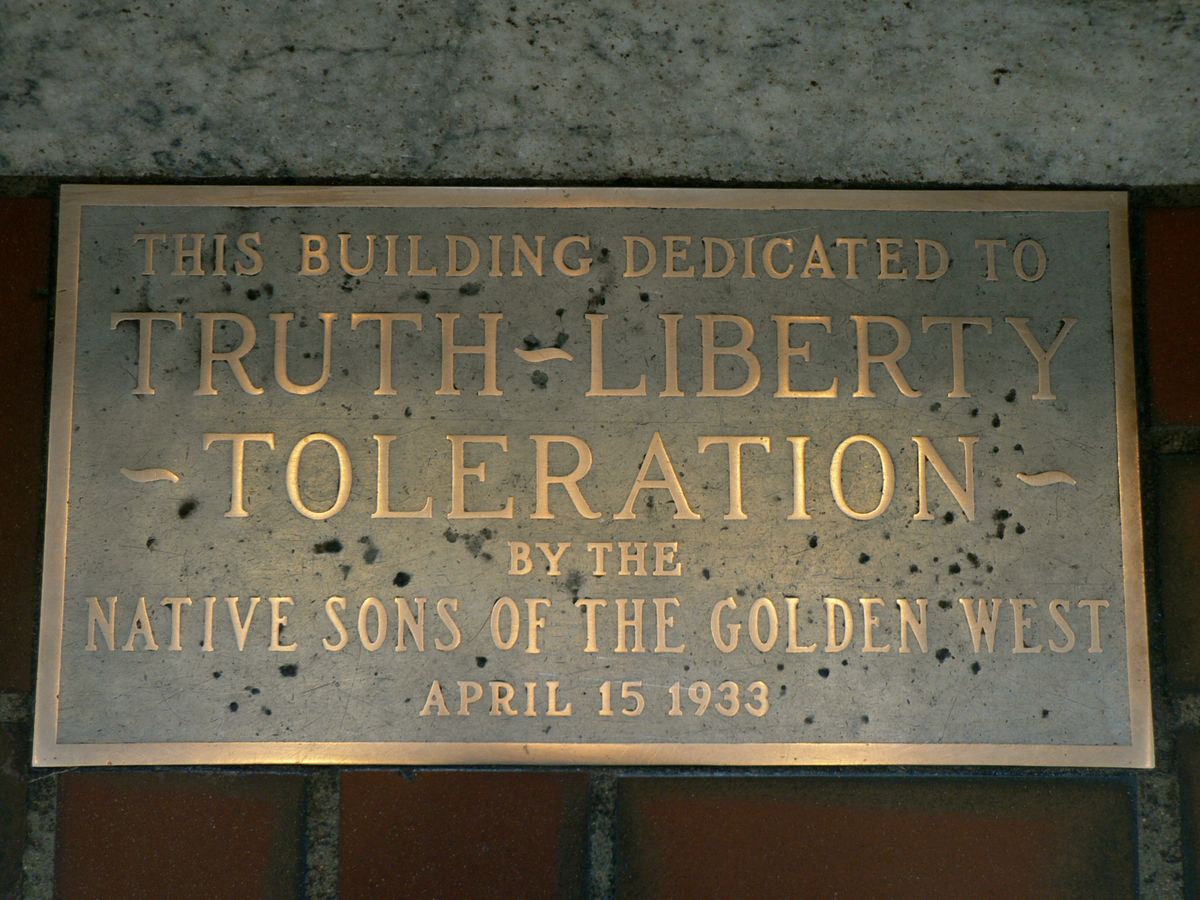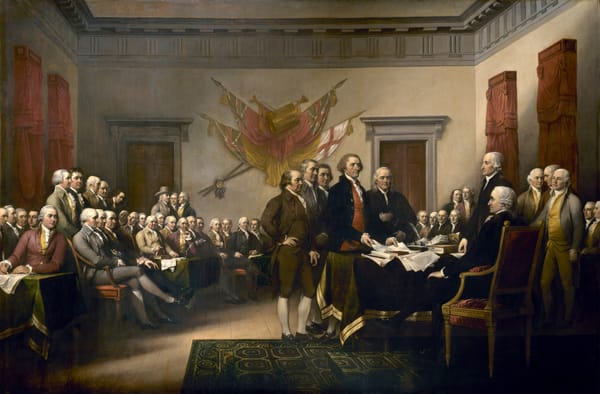Understanding Liberalism in Moral Terms: Michael Walzer's "The Struggle for Decent Politics"

For friends of liberalism, to be liberal-minded means possessing a broad curiosity about all things unbridled by prejudice or contempt. As the Roman playwright Terence once put it: “I am human, and I think nothing human is alien to me.” For critics of liberalism this self-ascribed broadmindedness is either or a vice masquerading as virtue at best, or an outright sham at worst. Liberals are either people too broadminded to take their own side in argument, or ideologues for a nihilistic and superficial creed tyrannically establishing itself everywhere under the veneer of DEI initiatives and hate speech laws.
Michael Walzer’s new book The Struggle for a Decent Politics focuses a lot on these questions. Walzer is well equipped to tackle them. Associated with both the American left and the influential communitarian tradition over a decades long career, Walzer is a wizened and sagacious commentator who has seen the gems and warts of liberalism alike. He wisely rejects the efforts to essentialize the liberal tradition by reducing it down to simple ideological formulae or positions, preferring a more fluid and experiential approach. Walzer acknowledges that once upon a time liberalism was an “ism like all the other isms. In the nineteenth century and for some years and in some places in the twentieth, free speech, open borders, a minimal state, radical individualism, civil liberty, religious toleration, minority rights. But this ideology is now called libertarianism, and most Americans who identify themselves as liberals don’t accept it-at least, not all of it.” Instead Walzer says liberals today are better understood in “moral rather than political or cultural terms: we are, or we aspire to be, open-minded, generous and tolerant. We are able to live with ambiguity; we are ready for arguments that we don’t feel we have to win. Whatever our ideology, whatever our religion, we are not dogmatic; we are not fanatics…a liberal is someone who ‘doesn’t have a small mind.’”
This lack of fanaticism or dogmatism is why Walzer wants to treat liberalism “as an adjective”-one part of an identity which can be combined with others in a startling number of ways. These aren’t just abstract questions for Walzer. At 88, he acknowledges that The Struggle for a Decent Politics may well be his last book. Like Raymond Geuss’ Not Thinking Like a Liberal this work of political theory doubles as something of an autobiographical exegesis. Walzer describes in both general and highly personal terms how one can be a liberal and a democrat, socialist, nationalist, internationalist, communitarian, feminist and Jew all at once. Truly someone who contains multitudes. Do they contradict themselves? Walzer thinks not, and he makes a compelling case looking at the rich tapestry of his own life spent wrestling with the liberal tradition and its critics.
Thinking like a liberal
“Out of the crooked timber of humanity, no straight thing was ever made.”
Immanuel Kant
The contention that liberalism can, but invariably will, be combined with other convictions is ironically both uncontroversial and sure to generate a great deal of controversy. It is uncontroversial since liberals as far back as Locke’s “Letter on Toleration” have prided themselves on a respect for social pluralism and diversity. It is controversial because liberals have never agreed on which kinds of divergent convictions one can hold and still remain a liberal. Hayek infamously mused that a liberal dictatorship might be preferable to a democratic government lacking liberalism. Ludwig von Mises would have thought Walzer’s argument for liberal socialism oxymoronic, since the moral core of liberalism was a commitment to private property and private ownership of the means of production. And for a certain kind of militantly secular liberal, any kind of religious affiliation is at the very least cause for suspicion one harbors anti-rationalist and anti-Enlightenment views. But in each of these cases we see a tremendous weight placed on defining liberalism in a doctrinally pure manner and describing other convictions as more or less liberal to the extent they coincide with it. For Walzer this misses the historical and empirical fact that in the wild liberalism has become an immensely plastic outlook capable of marrying with many other convictions. Like all marriages some may be more or less stable than others, but the question is whether they work in themselves and not appeal to some abstract external standard.
Most readers will likely agree with Walzer that liberalism can align itself very comfortably with deep convictions about the importance of democracy, nationalism, and even internationalism. Indeed—even all of these at once. Most liberals would base that their tradition has enjoyed an enduring love affair with democracy, even if critics would point out that the course of this love never ran smooth. From Madison’s denunciation of “pure democracy” as “spectacles of turbulence and contention… incompatible with personal security or the rights of property” to recent libertarian texts with opaque titles like Against Democracy there have always been liberals who think they need some space from democracy, or even a divorce. On the other front even many contemporary liberals like Elizabeth Anderson would argue there has been an abiding failure to extend liberal democratic principles nearly far enough; for instance to “private government.” But for a variety of historical and theoretical reasons by and large liberal and democrat have become so deeply synonymous in people’s minds few are likely to militate sharply against Walzer synthesizing the two.
Likewise both nationalism and internationalism, if not possessing strictly liberal origins, have found partisans in the modern era. As the Marxist historian Eric Hobsbawm points out, one of the ironies in conservative’s lionizing nationalism is that the most famous early nationalist movements took their cues from the bourgeois French Revolution. And demands for national self-determination and self-government have an elective affinity with liberal inclinations. On the other front liberal internationalism can flow quite readily from universalistic commitments to human freedom and equality if one is feeling generous, or from the globalizing imperatives to spread market society to valorize capital if one is feeling critical. Liberals and liberal socialists like Eleanor Roosevelt and John Humphrey were stalwart advocates of international human rights law, and many neoliberals enthusiastically endorsed international trade law as a means of spreading markets. While liberal nationalists and liberal internationalists may confront one another on many points, or align at others such as rights to self-determination, both are recognizably liberal positions.
Strangely, Walzer is skeptical that one could be a liberal and a cosmopolitan. For him “cosmopolitans condemn all nationalisms; they deny the value of national membership and surrender the hope of a concert of nations.” While they acknowledge individual rights they deny the “high value on their particular memberships” many of us place on being “French, Japanese, Arab, Norwegian, and so on, and no as citizens of the world.” For Walzer the “refusal to value these identifications and the pluralism that results from them” seem “illiberal. It prefers men and women as they should be to men and women as they are-who would have to be forced to be cosmopolitan.” He then goes on to describe a worldwide state in Kantian terms as a kind of “soulless despotism.”
This strikes me as simply incorrect at a logical level. Walzer is no doubt right that there would be something deeply illiberal about compelling people to abandon their “particular memberships” in the national community they value. But there is nothing illiberal in pointing out there is no intrinsic reason to conceive of one’s communal “memberships” in nationalist terms. The nation is a real abstraction—it exists only insofar as individuals continue to project its existence and act according to its perceived imperatives. If individuals ceased to believe in the real abstraction of the nation and came to conceive of themselves as members of the human species or the global community instead, I don’t see what would be particularly illiberal about transferring their ties to such levels. One can even imagine a less extreme case where individuals retain their membership to a given national identity but identify with a cosmopolitan humanity and political ordering over and above that. For instance there is evidence that, after a rocky 2010s defined by nationalist agitation, many Europeans are increasingly optimistic about the European Union and integration. Whether such transitions would be desirable or not can be contested, but they hardly seem impossible.
The prospect of liberal socialism
The most commented on feature of Walzer’s book has undoubtedly been his long section on “liberal socialism,” which draws heavily from his decades of experience at Dissent Magazine and as one of America’s premiere left wing theorists. As someone who himself identifies with this label (and has gotten a fair number of skeptical questions about it) I found both the theoretical and personal ruminations on liberal socialism warm and edifying. Walzer does a sparkling job of summarizing the importance of the liberal socialist tradition, and making the case for its theoretical and moral cogency.
For Walzer, the central creedal commitment of socialists is to “equality: the overcoming of poverty by the poor themselves, by working men and women organized in the labor movement and in socialist parties. The goal is the end of oppression the creation of a society from which the steep hierarchies that we know today and every kind of deference and humiliation have been banished.” In this respect socialists share with all liberals back to the classical tradition a deep suspicion of the toadying and supplicatory abasement which occurs in all societies predicated on subordination. But for Walzer “illiberal socialists” often make the end of radical equality so superordinate that they are willing to use authoritarian and even tyrannical means to bring it about. A liberal socialist isn’t an “egalitarianist” who believes “everyone should be equal in everything”—let alone that any means that bring about the ends of deeper equality are justified. But they are “serious about equality—more so, generally, than liberal democrats. Socialists and social democrats, even when they are no longer Marxists, are more ready to recognize the ways in which specific forms of inequality are embedded in long-standing practices and institutions.”
In terms of specifics, Walzer expresses considerable sympathy for “market socialism” which imagines a “mix of corporate, company, and business formations. There would be multiple socialized industries, organized at different levels…some would have boards with representative workers and consumers as well as investors; some would have government appointed boards dealing with strong unions. There would also be worker-owned companies, whose collective self-determination would produce different market outcomes.” This would be accompanied with a “socialist safety net” that unfortunately Walzer doesn’t define in great detail.
Walzer could do more to stress the connection liberal socialists place on that eminently liberal virtue of “freedom.” It is without a doubt the case that figures like Irving Howe, Chantal Mouffe, Charles Mills, and himself care more about equality than centrist liberal democrats. But this is intrinsically connected to liberal socialists’ concern with how inequities of wealth translate into inequities of power which all too often engender forms of domination. This is also why there is much for liberal socialists to learn from the Marxist tradition Walzer largely sidelines. He is absolutely correct that no liberal socialist could support vanguardist despotism—let alone authoritarian government. But the republican concern with non-domination at the normative core of Marx’s own work has rich insights into the alignment between freedom and equality that cannot be ignored.
Despite these reservations, Walzer deserves a great deal of credit for taking a vital step forward in canonizing the liberal socialist tradition and clarifying its core moral impulses and practical convictions. There is much more to be done, but the template has been established. Future liberal socialists will have to fill in the gaps.
Walzer’s The Struggle for a Decent Politics is a book of deep thinking and even deeper feeling. There is no doubt that many people will disagree, sharply, with the conviction that their version of liberalism could be squared with convictions they don’t recognize or hold in contempt. But there are many rooms in the house of liberalism, and so a place for us all. Any and all who identify with liberalism would benefit intellectually and emotionally from reading it. Walzer’s book could only have been written by a master whose fullest powers are flowering in winter.
Featured Image is Dedication Plaque, by Christina Castro




